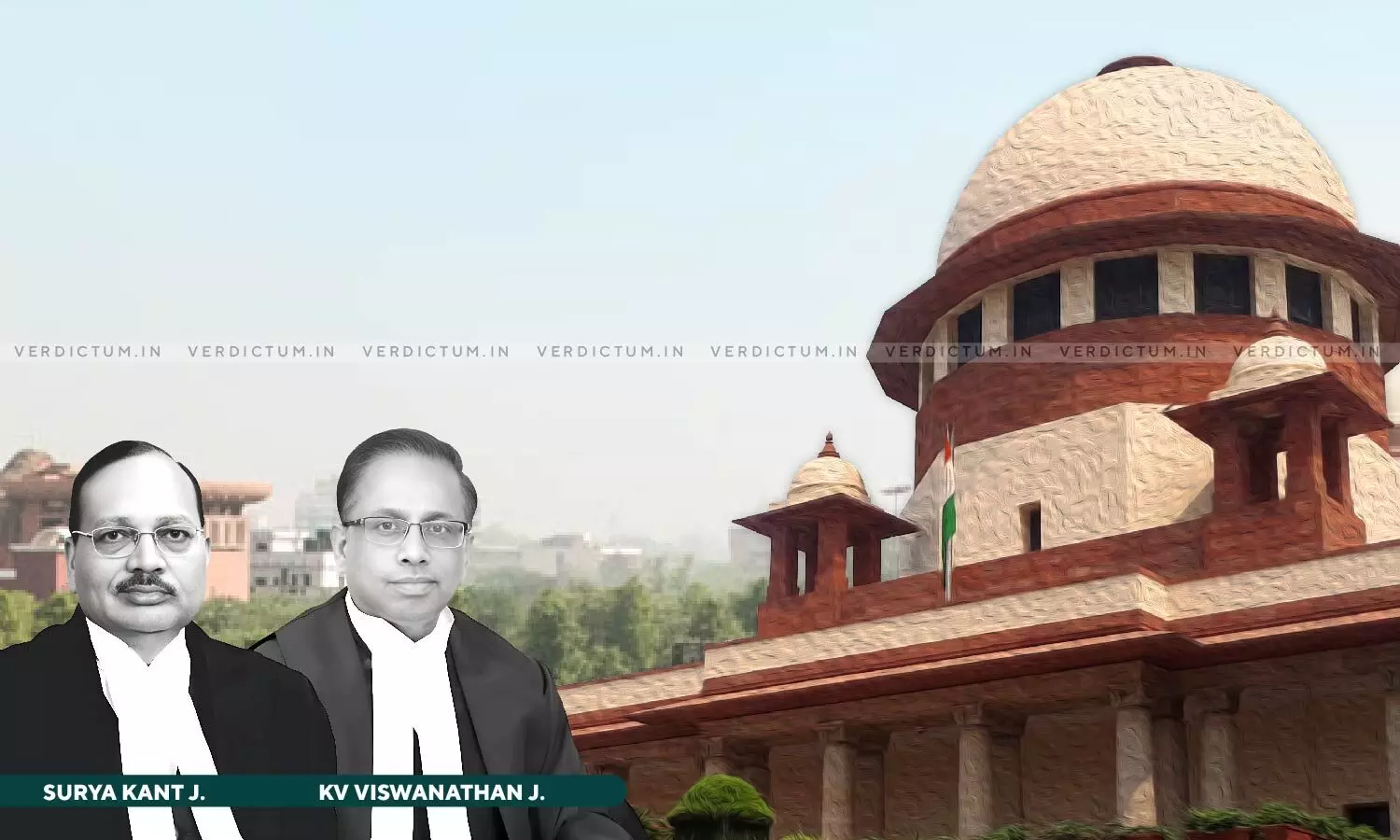
Can Time-Barred Debts Be Recovered By Invoking Remedies Under Special Statutes For Debt Recovery?: SC Refers Question To 3 Judges Bench
 |
|The Supreme Court will consider the question whether debts, which cannot be recovered by filing civil suits as they are time-barred under the Limitation Act 1963, can be recovered by invoking other remedies under special statutes for debt recovery.
Referring the question to a three-Judge Bench, the Bench of Justice Surya Kant and Justice KV Viswanathan said that, "we are of the opinion that, for a comprehensive consideration and an authoritative pronouncement after taking into account all aspects, including those dealt with hereinabove, the matter needs to be placed before the Hon’ble Chief Justice of India to constitute an appropriate three-judge bench."
The Court was hearing an appeal against a Punjab and Haryana High Court judgment, which allowed the recovery of a time-barred debt under the Haryana Public Moneys (Recovery of Dues) Act, 1979, coupled with the State Financial Corporation Act, 1951.
In the High Court, the appellants cited a Supreme Court judgment (State of Kerala vs. V.R. Kalliyanikutty & Anr., 1999) to argue that a time-barred debt couldn't be recovered under the Recovery of Dues Act. However, the High Court distinguished this judgment, referring to earlier Supreme Court precedents (such as Bombay Dyeing and Manufacturing Company Limited vs. The State of Bombay and Ors., 1958) which stated that limitation laws only barred the remedy but didn't extinguish the debt.
The questions which arose for consideration before the Apex Court were:
1) Are the appellants right in contending that the recovery proceedings initiated against them under the Recovery of Dues Act are barred in view of the principle laid down in V.R.Kalliyanikutty?
2) If they are right, then is the decision in V.R. Kalliyaikutty contrary to the holding in Bombay Dyeing and Manufacturing Company Limited, and if so what is the course open for this two-Judge Bench?
The Court observed that, "a debt is not the same thing as the right of action for its recovery. While the debt is the right in the creditor with the corelative duty on the debtor the right of action for recovery is in the nature of a legal power. While the process of filing a civil suit may be barred because of the statute of limitation, the power to recover vested through Section 32-G of the State Financial Corporations Act read with Section 2(c) and Section 3 of the Recovery of Dues Act is a distinct power which continues notwithstanding that another mode of recovery through a civil suit is barred. Understood in that sense, it does appear that there is an additional right to enforce the claims of the financial corporations notwithstanding the bar of limitation."
It was further observed that in the case of KC Ninan v. Kerala State Electricity Board, after noticing V.R. Kalliyanikutty, held that the statute of limitation only barred a remedy, while the right to recover the loan through 'any other suitable manner provided' remains untouched.
In light of the same, the papers were placed before the Chief Justice of India for appropriate directions.
Cause Title: K.P. Khemka & Anr. vs Haryana State Industrial and Infrastructure Development Corporation Limited & Ors.
Click here to read/download the Judgment